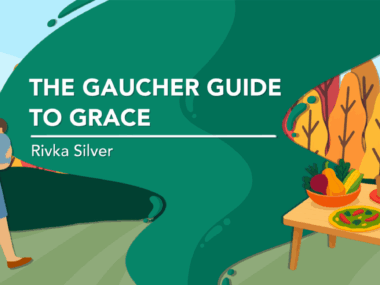Yes, I have Gaucher disease, but I don’t feel ‘sick’
Why the term doesn't resonate with me
Written by |

As someone who is generally healthy and asymptomatic, I often feel like my Gaucher disease is tucked away in the back of my mind. Sometimes it creeps back in, reminding me, “Hey, I’m still here” — like when I get my infusion every other week or when my doctor mentions that my bone density still hasn’t improved. But aside from moments like those, I could easily forget I even have the disease. (Doesn’t everyone keep an IV pole and medical supplies at home?)
That’s why I’ve always struggled with the word “sick.” It’s a constant balancing act acknowledging that, yes, I do have a disease, while also recognizing that most days, I feel completely fine.
I’m not in bed. I’m not in pain. I’m not suffering in the way people often imagine when they hear “chronic illness.” So how do I describe my reality in which I have a disease but live a completely normal life?
My yearly checkups at the Gaucher clinic used to intimidate me. Hospitals have a way of making you feel unwell even when you aren’t. The smell, the lighting, the endless poking and prodding — it all used to overwhelm me. At 27 years old, I still bring my mom with me to these appointments, a small act of comfort in an otherwise clinical space. But slowly, things have shifted. I now recognize the ultrasound tech. The nurses know my name. The fear is still there, but it’s quieter.
Still, these appointments stir up something uncomfortable: the reminder that I am, technically, “sick.” I want to shout, “But I don’t feel sick!” It’s taken time and self-acceptance to understand that both can be true. I can have a disease and live a full life. I can face challenges and overcome them. These things are not mutually exclusive.
When I was diagnosed, I felt so unsure about what my future would look like. I worried the label “sick” would change how others saw me — or how I saw myself. But a friend with Gaucher offered me something I’ve never forgotten: She said that maybe something good would come from it. At the time, I couldn’t imagine how. But she was right.
Being diagnosed forced me to pay attention to my body. I prioritize exercise, I focus on getting enough vitamin D and calcium, and I stay on top of my health in ways I probably wouldn’t have otherwise. There’s some comfort in knowing I’m regularly monitored; if anything’s wrong, we’ll catch it early. And most unexpectedly, opening up about my diagnosis led me here: to this column, to this community.
So, yes, I have Gaucher. But no, it doesn’t hold me back. If anything, it has pushed me forward.
Note: Gaucher Disease News is strictly a news and information website about the disease. It does not provide medical advice, diagnosis, or treatment. This content is not intended to be a substitute for professional medical advice, diagnosis, or treatment. Always seek the advice of your physician or other qualified health provider with any questions you may have regarding a medical condition. Never disregard professional medical advice or delay in seeking it because of something you have read on this website. The opinions expressed in this column are not those of Gaucher Disease News or its parent company, Bionews, and are intended to spark discussion about issues pertaining to Gaucher disease.




